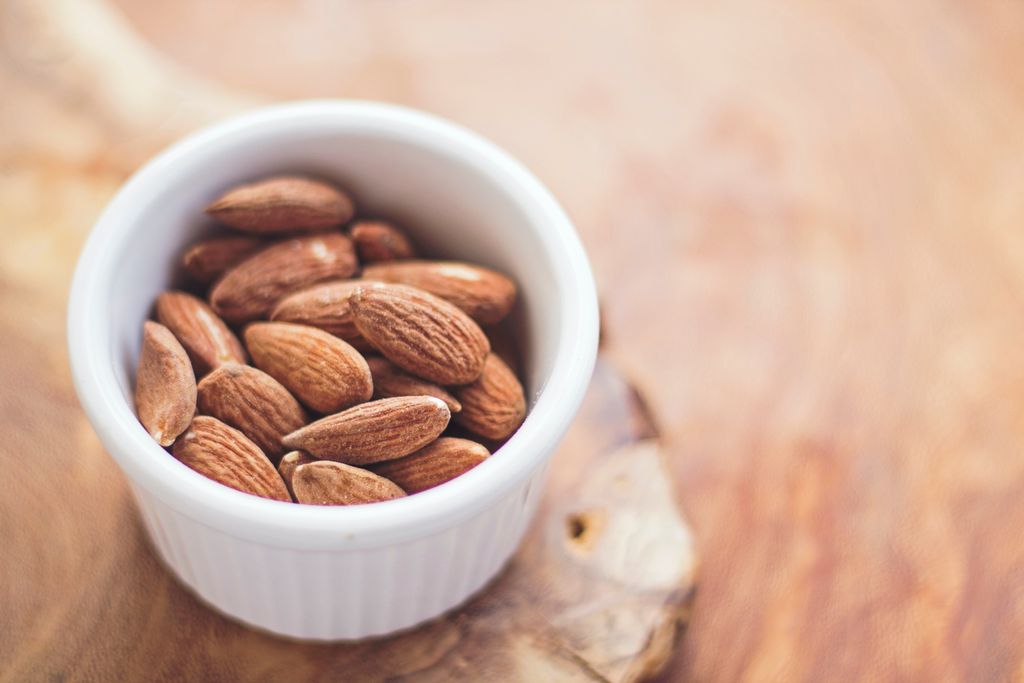Food processing equipment exports play a significant role in the Netherlands’ economy, contributing to the growth of the country’s food processing industry. This article provides an overview of food processing equipment exports in the Netherlands, including key players, trends, challenges, and opportunities for growth. It also discusses the quality standards and certifications required for exporting food processing equipment to the Netherlands, as well as their impact on export opportunities. Furthermore, the article analyzes the demand for food processing equipment in the Netherlands, including the current market size, growth rate, and key end-use industries. Lastly, it explores the export procedures, documentation requirements, logistics considerations, and financing options for exporting food processing equipment to the Netherlands.
Key Takeaways
- Food processing equipment exports contribute to the growth of the Netherlands’ food processing industry.
- Complying with quality standards and certifications is essential for exporting food processing equipment to the Netherlands.
- The demand for food processing equipment in the Netherlands is driven by various factors, including the growth of the food processing industry and changing consumer preferences.
- Key end-use industries for food processing equipment in the Netherlands include dairy, meat, and beverage.
- Exporters of food processing equipment need to be aware of customs regulations, documentation requirements, logistics considerations, and available financing and insurance options.
Overview of Food Processing Equipment Exports in the Netherlands
Key Players in the Dutch Food Processing Equipment Industry
In the Dutch food processing equipment industry, we have identified several key players who have established a strong presence in the market. These companies have a proven track record of delivering high-quality equipment and innovative solutions to meet the evolving needs of the industry. Some of the prominent players include:
- Company A: Known for its cutting-edge technology and advanced processing equipment, Company A has gained a reputation for reliability and efficiency.
- Company B: With a wide range of equipment offerings, Company B has successfully catered to the diverse requirements of food processing businesses.
- Company C: Specializing in customized solutions, Company C has been a preferred choice for businesses looking for tailored equipment to meet their specific needs.
These key players have not only contributed to the growth of the Dutch food processing equipment industry but have also played a crucial role in driving innovation and setting industry standards.
Trends in Food Processing Equipment Exports
In recent years, we have observed several promising trends in the export of food processing equipment from the Netherlands. One notable trend is the increasing demand for automated machinery that can streamline production processes and improve efficiency. This shift towards automation is driven by the need for cost reduction and higher productivity in the food processing industry.
Another trend that has emerged is the growing focus on sustainable equipment. Dutch exporters are recognizing the importance of environmental sustainability and are developing innovative solutions that minimize energy consumption and waste generation.
Furthermore, there is a rising demand for hygienic equipment in the food processing sector. With stricter regulations and consumer expectations for food safety, Dutch exporters are investing in technologies that ensure clean and sanitary processing.
To capitalize on these trends, it is crucial for Dutch food processing equipment exporters to stay updated with the latest market developments and continuously innovate their products and services.
Challenges Faced by Dutch Food Processing Equipment Exporters
As Dutch food processing equipment exporters, we face several challenges in the international market. One of the key challenges is competition from other countries that also produce high-quality equipment. This requires us to constantly innovate and stay ahead of the game.
Another challenge is regulatory compliance. Exporting to different countries means navigating through various regulations and standards. Ensuring that our equipment meets the required certifications and quality standards can be time-consuming and costly.
Additionally, logistics and shipping pose challenges in exporting food processing equipment. Coordinating transportation, dealing with customs regulations, and ensuring timely delivery can be complex and require careful planning.
To overcome these challenges, it is crucial for us to stay updated on the latest industry trends, collaborate with regulatory bodies, and invest in efficient logistics and shipping solutions. By doing so, we can continue to thrive in the competitive international market.
Opportunities for Growth in the Netherlands’ Food Processing Equipment Market
In the Netherlands’ food processing equipment market, we see several opportunities for growth. One key opportunity lies in the increasing demand for innovative and sustainable equipment. As consumers become more conscious of the environmental impact of food production, there is a growing need for equipment that can reduce waste, energy consumption, and carbon emissions. Innovative and sustainable equipment manufacturers have a chance to capitalize on this trend.
Another opportunity for growth is the expansion of export markets. The Netherlands has a strong reputation for producing high-quality food processing equipment, and there is a growing demand for such equipment in international markets. By exploring new export opportunities and establishing partnerships with distributors and buyers abroad, Dutch exporters can tap into a larger customer base and increase their sales.
To seize these opportunities, it is crucial for Dutch food processing equipment exporters to stay updated with the latest market trends and technologies. Investing in research and development, collaborating with industry experts, and attending trade shows and exhibitions can provide valuable insights and networking opportunities. By staying ahead of the curve, Dutch exporters can position themselves as leaders in the global food processing equipment market.
Quality Standards and Certifications for Food Processing Equipment
Regulatory Bodies and Standards in the Netherlands
In the Netherlands, there are several regulatory bodies and standards that govern the food processing equipment industry. These bodies ensure that the equipment meets the necessary safety and quality requirements. One important regulatory body is the Netherlands Food and Consumer Product Safety Authority (NVWA), which is responsible for enforcing food safety regulations. Another key standard is the ISO 9001 certification, which ensures that the equipment meets international quality management standards. Complying with these regulatory bodies and standards is crucial for exporters to gain access to the Dutch market and build trust with customers.
- The Netherlands Food and Consumer Product Safety Authority (NVWA) ensures food safety regulations are enforced.
- ISO 9001 certification guarantees international quality management standards are met.
- Complying with regulatory bodies and standards is crucial for market access and customer trust.
Certifications Required for Exporting Food Processing Equipment to the Netherlands
When exporting food processing equipment to the Netherlands, it is important to ensure that the necessary certifications are obtained. One key certification required is the European Conformity (CE) marking, which indicates that the equipment meets the essential health, safety, and environmental requirements. Additionally, other certifications may be required depending on the specific type of equipment being exported.
To successfully export food processing equipment to the Netherlands, it is essential to comply with the following certifications:
- European Conformity (CE) marking: Ensures compliance with health, safety, and environmental requirements.
- ISO 9001 certification: Demonstrates adherence to quality management systems.
- HACCP certification: Ensures compliance with food safety management systems.
Obtaining these certifications not only ensures compliance with Dutch regulations but also enhances the credibility and marketability of the exported equipment.
Tip: It is recommended to work with a knowledgeable export consultant or legal advisor to navigate the certification process and ensure compliance with all requirements.
Benefits of Complying with Quality Standards
Complying with quality standards is crucial for ensuring product safety and maintaining customer trust. By adhering to these standards, we demonstrate our commitment to delivering high-quality food processing equipment. This not only helps us meet the requirements of regulatory bodies in the Netherlands but also enhances our reputation in the market.
Additionally, complying with quality standards provides several benefits:
- Access to a wider customer base: Meeting quality standards opens doors to new markets and customers who prioritize safety and quality.
- Reduced risk of product recalls: By following quality standards, we minimize the risk of manufacturing defects and ensure that our products meet the necessary safety requirements.
- Improved efficiency and productivity: Implementing quality standards helps streamline our processes, leading to improved efficiency and productivity.
In order to fully leverage the benefits of complying with quality standards, it is important to stay updated with the latest regulations and continuously improve our processes.
Impact of Quality Standards on Export Opportunities
Complying with quality standards is crucial for export opportunities. Meeting the required regulatory bodies and obtaining the necessary certifications is essential for accessing the Dutch market. By adhering to these standards, we can ensure that our food processing equipment meets the highest level of quality and safety. This not only enhances our reputation as a reliable supplier but also increases our chances of success in the competitive market. It is important to stay updated on the latest standards and regulations to maintain our export opportunities.
- Complying with quality standards is crucial for export opportunities
- Meeting regulatory bodies and obtaining certifications is essential
- Adhering to standards ensures high quality and safety
- Enhances reputation as a reliable supplier
- Increases chances of success in the competitive market
- Stay updated on the latest standards and regulations
Market Analysis: Demand for Food Processing Equipment in the Netherlands
Current Market Size and Growth Rate
The current market size of the food processing equipment industry in the Netherlands is experiencing steady growth. With increasing demand for processed food products, the need for advanced equipment is on the rise. This presents a significant opportunity for suppliers in the market to capitalize on the growing demand. Key factors driving the growth include technological advancements, changing consumer preferences, and the expansion of the food processing industry. As the market continues to expand, it is crucial for suppliers to stay updated with the latest trends and innovations to remain competitive.
Factors Driving the Demand for Food Processing Equipment
In our analysis, we have identified several factors that are driving the demand for food processing equipment in the Netherlands:
-
Increasing consumer demand for processed food: The growing preference for convenience and ready-to-eat meals has led to a rise in the demand for food processing equipment.
-
Technological advancements in the food industry: The adoption of advanced technologies in food processing, such as automation and robotics, has increased the efficiency and productivity of food processing equipment.
-
Stringent food safety regulations: The Netherlands has strict food safety regulations, which require food processing companies to maintain high standards of hygiene and quality. This has led to an increased demand for equipment that can ensure compliance with these regulations.
-
Growing focus on sustainability: There is a growing awareness and concern about the environmental impact of food processing. As a result, there is a demand for equipment that can help reduce waste and energy consumption.
Tip: Food processing equipment exporters should consider these factors when developing and marketing their products to the Netherlands market.
Key End-Use Industries
Our agents are experienced in every industry imaginable. With a diverse staff with experience across various industries, we understand the challenges and complexities that come with handling cases in your field.
- Manufacturing
- Construction
- Staffing
- Logistics
- Marketing
- SaaS
- Health Care
- Hospitality
- Legal
- Financial
- Retail
- Media
Call Now To Start Collecting Your Money 407-374-0000
Competitive Landscape of Food Processing Equipment Suppliers
In the competitive landscape of food processing equipment suppliers, we can see a diverse range of companies vying for market share. Some of the key players in the Netherlands include Company A, Company B, and Company C. These companies have established a strong presence in the industry and are known for their innovative and high-quality products.
To stay ahead in this competitive market, it is crucial for suppliers to continuously innovate and adapt to changing customer demands. This includes investing in research and development to create cutting-edge equipment that improves efficiency and meets the highest quality standards.
Additionally, building strong relationships with customers and providing excellent after-sales service can give suppliers a competitive edge. By offering timely maintenance and support, suppliers can ensure customer satisfaction and loyalty.
Overall, the competitive landscape of food processing equipment suppliers in the Netherlands is dynamic and requires constant innovation and customer-centric strategies to succeed.
Export Procedures and Documentation for Food Processing Equipment
Customs Regulations and Export Requirements
When exporting food processing equipment to the Netherlands, it is important to comply with customs regulations and meet the export requirements set by the Dutch authorities. This ensures a smooth and hassle-free export process. Some key points to keep in mind include:
- Properly classifying the equipment according to the Harmonized System (HS) codes.
- Providing accurate and complete documentation, including invoices, packing lists, and certificates of origin.
- Adhering to any specific labeling or packaging requirements.
Tip: It is recommended to work with a customs broker or freight forwarder who is familiar with the Dutch customs procedures to navigate the export process efficiently.
Documentation Needed for Exporting Food Processing Equipment
When exporting food processing equipment to the Netherlands, it’s crucial to ensure that all required documentation is complete and accurate. This includes the Certificate of Origin and the Commercial Invoice. These documents play a vital role in customs clearance and are essential for a smooth export process. Additionally, it’s important to verify the specific documentation requirements with the Dutch customs authorities to avoid any delays or complications.
For a comprehensive understanding of the documentation needed, refer to the following table:
| Document | Description |
|---|---|
| Certificate of Origin | Proof of the country where the goods are manufactured |
| Commercial Invoice | Details of the transaction, including the value of the goods |
It’s advisable to work closely with experienced exporters or consult with trade experts to ensure compliance with all documentation requirements. This proactive approach can help mitigate potential issues and streamline the export process.
Logistics and Shipping Considerations
When it comes to logistics and shipping considerations, we understand the importance of a smooth and efficient process. Our team is experienced in handling the transportation of food processing equipment to the Netherlands, ensuring that it arrives safely and on time.
- We work closely with trusted shipping partners to provide reliable and cost-effective solutions.
- Our experts are well-versed in the necessary documentation and customs regulations, making the export process hassle-free.
- We offer flexible shipping options to accommodate your specific needs, whether it’s air freight or sea freight.
For a seamless logistics and shipping experience, trust us to handle your food processing equipment exports to the Netherlands.
Export Financing and Insurance Options
When it comes to export financing and insurance options, we understand the importance of mitigating risks and ensuring smooth transactions. Here are some key points to consider:
- Export financing: Explore various financing options available to support your export activities, such as export credit insurance, export working capital loans, and export factoring.
- Insurance coverage: Protect your business against potential losses with export credit insurance, which can provide coverage for non-payment, political risks, and commercial risks.
- Government support: Take advantage of government programs and initiatives that offer financial assistance and insurance solutions for exporters.
Tip: It is crucial to carefully assess your financing and insurance needs and consult with experts in the field to make informed decisions that align with your business goals.
In this article, we will discuss the export procedures and documentation required for food processing equipment. Exporting food processing equipment can be a complex process, as it involves complying with various regulations and ensuring the equipment meets the necessary standards. It is important to understand the documentation requirements, such as the commercial invoice, packing list, and bill of lading. Additionally, certain countries may have specific import regulations for food processing equipment, which must be followed. At Debt Collectors International, we specialize in debt collection solutions for businesses. If you are facing challenges with debt collection, we can help. Visit our website to learn more about our services and how we can assist you in recovering your outstanding debts.
Frequently Asked Questions
What is the current market size of the food processing equipment industry in the Netherlands?
The current market size of the food processing equipment industry in the Netherlands is estimated to be XX billion dollars.
What are the key players in the Dutch food processing equipment industry?
Some of the key players in the Dutch food processing equipment industry include Company A, Company B, and Company C.
What are the trends in food processing equipment exports in the Netherlands?
Some of the trends in food processing equipment exports in the Netherlands include increasing demand for automation, growing focus on sustainability, and rising adoption of advanced technologies.
What are the challenges faced by Dutch food processing equipment exporters?
Some of the challenges faced by Dutch food processing equipment exporters include intense competition, regulatory compliance, and fluctuating raw material prices.
What certifications are required for exporting food processing equipment to the Netherlands?
Some of the certifications required for exporting food processing equipment to the Netherlands include ISO 9001, ISO 22000, and CE Marking.
What are the logistics and shipping considerations for exporting food processing equipment to the Netherlands?
When exporting food processing equipment to the Netherlands, it is important to consider factors such as packaging, transportation, and customs clearance.





